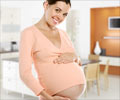Women who use a class of tranquilizers called benzodiazepines before becoming pregnant are at greater risk of ectopic pregnancies, stated new study.

‘For women using benzodiazepines, it is important that providers are aware of the potentially small increased risk of ectopic pregnancy, and women should be counseled about possible symptoms of ectopic pregnancy such as early blood spotting and lower abdominal pain.’





Ectopic pregnancies occur in one to two percent of pregnancies each year and are a serious health emergency for women. They are responsible for 6-13% of pregnancy-related deaths, and deaths from haemorrhaging is the leading cause of pregnancy-related death in the first trimester of pregnancy. They can also lead to serious complications and infertility. Although pelvic infections, use of reproductive technology, intrauterine devices, smoking and increased age are known to be risk factors for ectopic pregnancies, approximately half of women who have an ectopic pregnancy do not have a known risk factor.
Dr Elizabeth Wall-Wieler, a postdoctoral research fellow at Stanford University School of Medicine (California, USA), who led the research, said: "Most studies that look at the use of medications such as benzodiazepines in pregnancy focus on the effect on the child. I am interested in the impact these drugs have on the health of the woman, and found that although the use of specific medications around conception could be affecting the reproductive system, there was no research on the use of psychotropic medication on the risk of ectopic pregnancy. This is despite the fact that benzodiazepine use in pregnancy has been found to be associated with miscarriage, adverse birth outcomes and child development outcomes."
Dr Wall-Wieler and her colleagues analysed data from US health insurance claims for 1,665,446 pregnancies in women aged between 15 and 44 between 1 November 2008 and 30 September 2015. Of these, one percent of women filled out at least two prescriptions for benzodiazepine totalling at least ten days supply in the 90 days before conception.
A total of 30,046 (2%) pregnancies were ectopic and 17,990 (1%) were to women who had a benzodiazepine prescription before conception.
Advertisement
In order to check whether it might be the benzodiazepine use or the medical condition being treated that could be involved in the risk of ectopic pregnancy, the researchers carried out two separate analyses into women diagnosed with anxiety or insomnia.
Advertisement
"For women with specific health conditions such as anxiety or insomnia, benzodiazepines can be an important part of their treatment; yet a lot is unknown about how safe it is to use these drugs for women who become pregnant. This study shows that women who use benzodiazepines when they become pregnant are at higher risk of having an ectopic pregnancy. When identifying treatment options, women and their care providers should understand the benefits and risks associated with treatment options, and more options should be available that have been demonstrated to be safe to use before and during pregnancy," said Dr Wall-Wieler.
Co-author, Dr Thalia Robakis, an associate professor of psychiatry at the Icahn School of Medicine at Mount Sinai (New York, USA), said: "It is nearly always premature to draw firm conclusions from a single observational study and more research needs to be carried out. However, it is a relatively low risk intervention to recommend supervised, tapered cessation of benzodiazepine use prior to stopping one's contraception, as long as this can be safely and appropriately done under physician supervision. The potential for positive impact is high if even a small number of ectopic pregnancies can be avoided."
The researchers suggest that healthcare providers could consider carrying out early pelvic ultrasound for women who have used benzodiazepines before conception, particularly if they have other risk factors for the condition. However, many women do not know they have an ectopic pregnancy until they start experiencing pain or other complications.
Co-author, Dr Deirdre Lyell, professor of obstetrics and gynaecology at Stanford University School of Medicine, said: "Early ultrasound and pregnancy hormone blood tests can help identify whether a pregnancy is ectopic or not."
Limitations of the study include the fact that the researchers relied on outpatient prescription data to identify benzodiazepine use before conception, which could result in over- or under-estimation of the actual consumption of the drug. They also relied on data from US health insurance claims to identify pregnancies and conception date, which could result in misclassification of pregnancy outcomes and the length of gestation.
Benzodiazepines include alprazolam, chlordiazepoxide, clobazam, clonazepam, clorazepate, diazepam, estazolam, flurazepam, lorazepam, oxazepam, quazepam, temazepam and triazolam.
Source-Eurekalert















